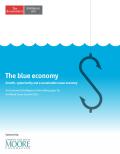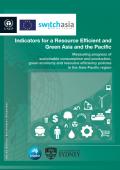

Renewable energy has been considered as the solution to the hydra-headed problems of energy security, energy access and climate change, especially in Africa. In addition, renewable energy sources, such as the sun, wind, wave and waste abound in Africa are in need of investment. In order to provide both policy and investment guidance, this study investigates the drivers of renewable energy demand in oil-producing African countries. Three panel data models – a random effect model, a fixed effects model and a dynamic panel data model – are used to estimate renewable energy demand with a comprehensive set of determinants. The estimation results indicate that the main drivers of renewable energy in oil-producing African countries are real income per capita, energy resource depletion per capita, carbon emissions per capita and energy prices. The study recommends that policies should encourage the consumption of commercial sources of renewable energy to attract the needed investments.

Natural resources are the foundation of economic development. This report reveals the patterns and the evolution of natural resource use with 118 indicators in 26 countries of the Asia and the Pacific region over the last 40 years. The analysis shows that resource use in the region is both inefficient and unsustainable. The Asia-Pacific region will not be able to base its future economic growth on declining costs of natural resources as was possible during most of the twentieth century. An increasing reliance on resources from abroad and volatility in the global resource markets will pose challenges to the economic resilience of countries in the region. In this new economic context resource efficiency and decoupling of economic growth and resource use will be fundamental to the economic success of the region. The knowledge generated by this report helps to improve the understanding of the natural resource use and emissions consequences of economic growth in Asia and the Pacific to support policy formulation, monitoring and policy evaluation in the countries of the region.
As the financial and environmental costs of resource depletion and negative ecological impacts begin to affect economic growth, countries around the world need to find ways to manage finite resources while meeting the needs of a growing and increasingly urban world population. By integrating sustainable consumption and production (SCP) patterns into national development planning and implementation, policymakers can make it easier and cheaper to produce goods and services more efficiently, with lower risks to humankind and the environment.
The handbook contains a rich compilation of SCP definitions, case studies from all over the world, policy instruments, policy implementation processes, monitoring and evaluation methodologies and indicators. It also contains compelling data on both the impact of unsustainable consumption and production, and the efficiency gains to be made by mainstreaming SCP patterns.
